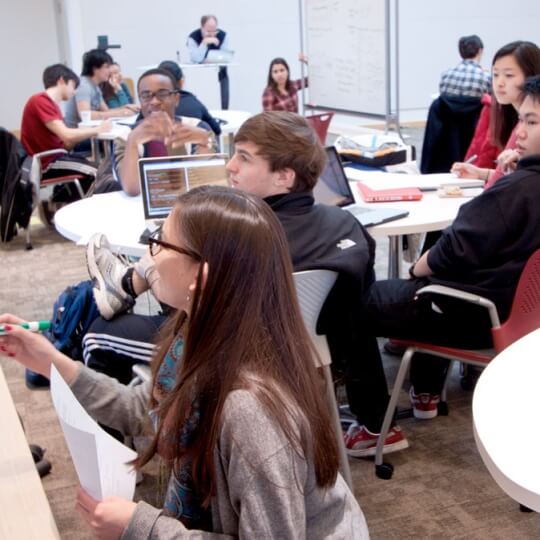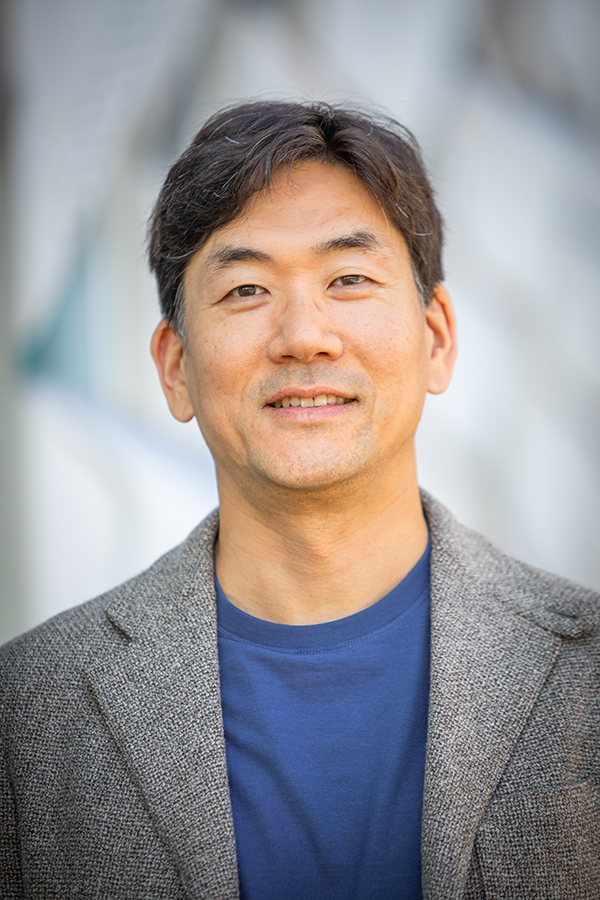News
Smarter networks and smarter classrooms will be part of higher education's future.
A SMARTER NETWORK
Jonathan Zittrain is Harvard Law School professor of law, School of Engineering and Applied Sciences (SEAS) professor of computer science, and co-founder and faculty co-director of the Berkman Center for Internet & Society.
Imagine a world where students learn not from pricey textbooks, but from a priceless community.We will transform teaching by making course texts digital and networked, among professors as well as students.
Professors will be able to browse syllabi from around the world, and then drag and drop the most fitting elements for their own classes.
They’ll contribute their own changes back to the commons, making for rapid microevolution of the texts and criticisms that spark student reaction and discussion.
And, thanks to the networked system, a teacher can be alerted when an assigned text is being read and digested elsewhere, creating opportunities for well-defined debate and criticism from students in Harvard Yard to those in Singapore or Saudi Arabia.
Machine translation is becoming good enough to allow communication not just across culture but across language, too.
Universities were central to building the Internet. They can build networked teaching, too, in the public interest, free and open to all who want to learn.
GETTING OUR HANDS DIRTY
Gu-Yeon Wei is Gordon McKay Professor of Electrical Engineering and associate dean for academic programs at SEAS.
Engineering is about solving real-world problems. More often than not, these problems are messy, ill defined, and fraught with practical constraints.
Instead of focusing on the transfer of knowledge from teacher to student, we are shifting our educational paradigm to engage students with the problems they face and to encourage them to get their hands dirty.
During this past January term, a “design thinking” workshop brought students together with industrial designers for a week of creative thinking—an excited flurry of activity by teams with diverse skills, who scurried about an open-seating venue, posting notes on walls to document iterations of the design process.
In our junior engineering design practicum, a group of students developed computational tools to tackle the problem of gang violence in collaboration with the Massachusetts State Police.
Some courses have experimented with clickers, iPads, and even automated recognition of facial gestures to understand how students learn from one another.
Others have used new classrooms, a simple approach that nonetheless makes it easier to encourage dialogue, teamwork, and active problem solving.
In short, experimentation is what will transform teaching and learning over the next 25 years. At Harvard’s School of Engineering and Applied Sciences, we are refining how we learn, think, and do.
(From the Commencement edition of the Harvard Gazette.)
Topics: Electrical Engineering, Computer Science, Academics
Cutting-edge science delivered direct to your inbox.
Join the Harvard SEAS mailing list.
Scientist Profiles
Jonathan Zittrain
George Bemis Professor of Law
Gu-Yeon Wei
Robert and Suzanne Case Professor of Electrical Engineering and Computer Science





